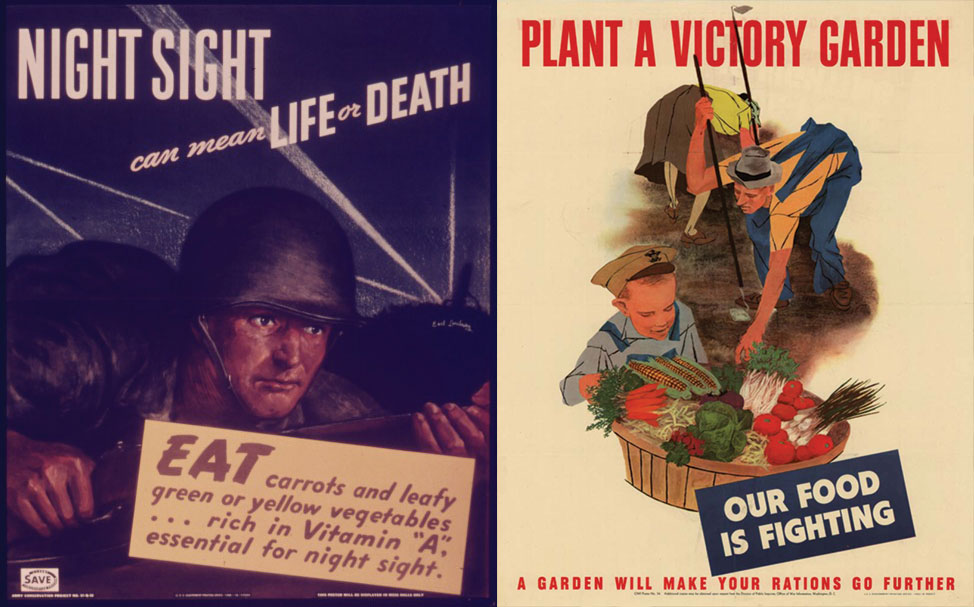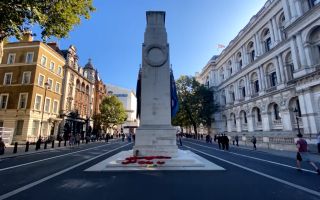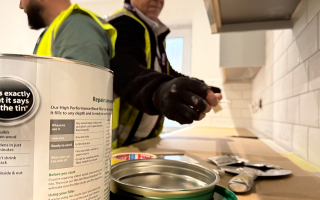
Tri-Service
The Luftwaffe And The Great Carrot Swindle

Airborne Interception Radar (AI) was key to winning the Battle of Britain, and we were desperate to keep this new-found technology secret...
But how?
Two little girls reading a board advertising carrots instead of ice lollies in 1941.
Disinformation and diet.
Carrots were used as an intelligence tool for the Ministry of Information to spread false rumours among German ranks, helping RAF pilots seek out German Dorniers and the like at night.
Rather than radar technology having anything to do with the success against German bombers, it was according to British press, a diet of carrots.
Although the vitamin-A rich vegetable does improve eyesight, it didn't give aviators super-human vision, enabling them to intercept Luftwaffe bombers despite the cover of darkness.
In 1940, RAF night fighter ace, John "Cat's Eyes" Cunningham, was the first to shoot down an enemy plane using AI. He’d later rack up an impressive total of 20 kills—19 of which were at night. Cunningham's abilities were chalked up to his love of carrots.
The Ministry were keen to spread further stories claiming RAF pilots were being fed ample portions of this root vegetable to foster similar abilities in them.
It's difficult to say whether the ruse, meant to send German tacticians on a wild goose chase, fooled them as planned, says John Stolarczyk, curator at the World Carrot Museum and expert in the field.
Mr Stolarczyk was quoted speaking to the Smithsonian:
“I have no evidence they fell for it, other than that the use of carrots to help with eye health was well ingrained in the German psyche. It was believed that they had to fall for some of it”
The effect on the British public, however, was widespread.
Fuelled by propaganda posters extolling carrots and their Übermensch qualities, the vegetable held on to its place in British folk lore for many years thereafter.
Disclaimer: Please avoid eating too many carrots, or you may turn orange.
The below is a video from the American Chemistry Society, where chemist Chad Jones explains why parents tell their children that carrots are good for their eyes.










